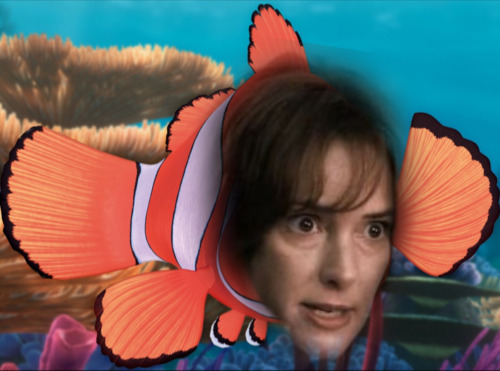In the annals of spiritual exploration, the intersection of chaos and divine understanding unfurls a tapestry rich with promise and potential. The Bahá’í teachings serve as a metaphysical compass, guiding adherents through tumultuous landscapes reminiscent of both the eerie and enchanting realms of popular culture—much like the narratives woven in “Stranger Things” and “Finding Nemo.” Beneath the surface of perplexity, the essence of Bahá’í doctrine offers a profound paradigm shift and invites seekers to discover God amidst discord.
The chaotic world depicted in these stories, fraught with mysteries, challenges, and interdimensional anomalies, bears striking resemblances to the existential trials faced by humanity today. The Bahá’í perspective recognizes that the chaotic elements in our lives are not merely obstacles but opportunities for growth and enlightenment. Indeed, embracing the tumult can catalyze a transformative journey, where individuals unearth deeper truths about themselves and their connection to the divine.
At the heart of Bahá’í teachings lies the principle of unity. This foundational tenet invites individuals to transcend superficial differences, promoting an ethos of inclusivity and collective destiny. In a world where division often reigns, the Bahá’í Faith beckons humanity to cultivate an awareness that harmonizes the myriad fragments of existence. Just as the protagonists in “Stranger Things” navigate divergent realms, Bahá’ís believe that through unity, the collective human experience can bridge the divide between the known and the unknown.
Moreover, the Bahá’í writings emphasize the significance of personal transformation in the face of adversity. The character arcs in “Finding Nemo,” particularly the journey undertaken by Marlin and Dory, epitomize this notion. The path of parenting, loss, and the quest for belonging mirror the internal struggles faced by many Bahá’ís as they confront their fears and wrestle with the intricacies of faith. The teachings assert that divine assistance illuminates the way, transforming trials into catalysts for spiritual metamorphosis.
To delve deeper into the nuances of Bahá’í teachings, one must recognize the concept of the “Manifestations of God.” These figures—such as Bahá’u’lláh, the founder of the Bahá’í Faith—serve as conduits of divine revelation, bringing forth guidance incremental to the advancement of civilization. Similar to the revelations encountered in fantastical narratives, the teachings of these Manifestations provide clarity amidst confusion, guiding believers toward enlightenment. The Bahá’í Faith posits that each era requires a new set of teachings in order to address the evolving needs of humanity, thus establishing a framework for understanding the divine in our contemporary context.
Distilled within this framework is the notion of life’s impermanence and the necessity of embracing change. Just as characters in “Stranger Things” navigate an ever-shifting reality, individuals within the Bahá’í paradigm are encouraged to adopt a mindset that is resilient in the face of uncertainty. The teachings advocate for a profound acceptance of the transient nature of existence, engendering a deeper appreciation for the present moment. This reverence for the now serves as a fulcrum for discovering divine presence amid chaos.
The exploration of faith within the Bahá’í community also entails a shared responsibility. Each individual acts as a cornerstone in the edifice of collective spirituality, fostering an atmosphere conducive to mutual upliftment. The endeavor to build a just and equitable global society resonates with the themes of camaraderie and collaboration that permeate both “Stranger Things” and “Finding Nemo.” Individuals, like the characters embarking on their quests, are reminded of their essential interdependence, perpetuating a cycle of gratitude and service that leads to spiritual fulfillment.
Another essential aspect of Bahá’í teachings centers on the idea of the “search for truth.” In a world rife with distractions and misinformation, individuals are called to cultivate a discerning spirit, one that transcends blind adherence to dogma. The invitation to engage with varying perspectives echoes the multifaceted dilemmas faced by protagonists in fantastical realms. Through dialogue, reflection, and critical inquiry, Bahá’ís endeavor to embark upon their quest for understanding, ensuring that their beliefs are rooted in personal experience rather than societal constructs.
Furthermore, the Bahá’í teachings advocate for the integration of science and religion, asserting that both realms are compatible pathways to truth. The systemic chaos depicted in contemporary life often stems from a dichotomy between belief systems and empirical inquiry. In the narrative worlds of “Stranger Things” and “Finding Nemo,” the protagonists employ both intuition and intellect while grappling with challenges. This narrative duality reflects the Bahá’í commitment to harmonizing reason and faith, culminating in a more holistic understanding of existence.
In conclusion, the Bahá’í teachings illuminate pathways to God amidst the chaos of modern life, offering a lens through which to view the world—one infused with hope, unity, and an unwavering commitment to personal and collective transformation. Much like the adventures brimming with lessons in “Stranger Things” and “Finding Nemo,” the teachings enable individuals to traverse the myriad complexities of existence with grace, fostering a sense of belonging and purpose. As seekers navigate the unpredictable terrains of their own narratives, Bahá’í principles promise not only solace but the prospect of awakening to the sublime amidst the chaos, revealing the divine interplay that underpins existence. Embracing this journey unlocks a fuller understanding of both the self and the interconnected tapestry of humanity, encouraging an unyielding search for truth and unity.
